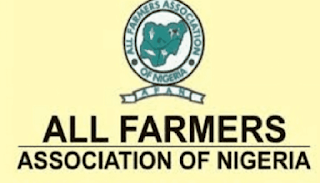All Farmers Association of Nigeria (AFAN), Oyo State chapter, has expressed fears that prices of food may rise in 2022, given the exorbitant prices of farming inputs.
Chairman of AFAN in the state, Mr John Olateru, expressed the fears in an interview with the News Agency of Nigeria (NAN) in Ibadan on Wednesday.
Olateru, who stated that farmers were gearing up for the 2022 planting season, however, decried the cost of inputs, saying that this might affect the operations of farmers and the prices of their outputs.
“Prices of chemicals are now more than triple of what they used to be; the same for fertilisers, while land preparation has gone from N5,000 to between N12,000 and N15,000 per hectare,” he said.
Olateru said that the cost of farming inputs and other associated factors might drive up the cost of food.
“The cost of cultivating farmlands has gone out of control and this will affect the prices of the items that will be planted,” he said.
The AFAN chairman also lamented what he called cumbersome procedures of accessing exchange rate by farmers and sometimes, non-availability of foreign exchange for importing farming inputs.
“Another problem is that on everything you import, there is 7.5 per cent VAT that you have to pay. There is also the five per cent minimum duty that you must pay on importation of tractors and other things.
“If you add 7.5 per cent with five per cent, that gives you 12.5 per cent duty on what you are importing, while the official forex is not available.
“All these will have multiplier effects on the prices of farmers’ outputs.
“When people are complaining about high prices of food commodities, they may not know the factors that are driving the costs,” he said.
On climate change, Olateru said on the side of farmers, going back to the farm was looking good, with favourable weather forecast, unlike what obtained in 2021.
“It looks like the weather will favour us this year. I can see NIMET encouraging farmers to start planting now, unlike what obtained last year.
According to him, farming has become a profitable venture, compared with other aspects of agriculture, particularly livestock, which is now running at a loss.

















